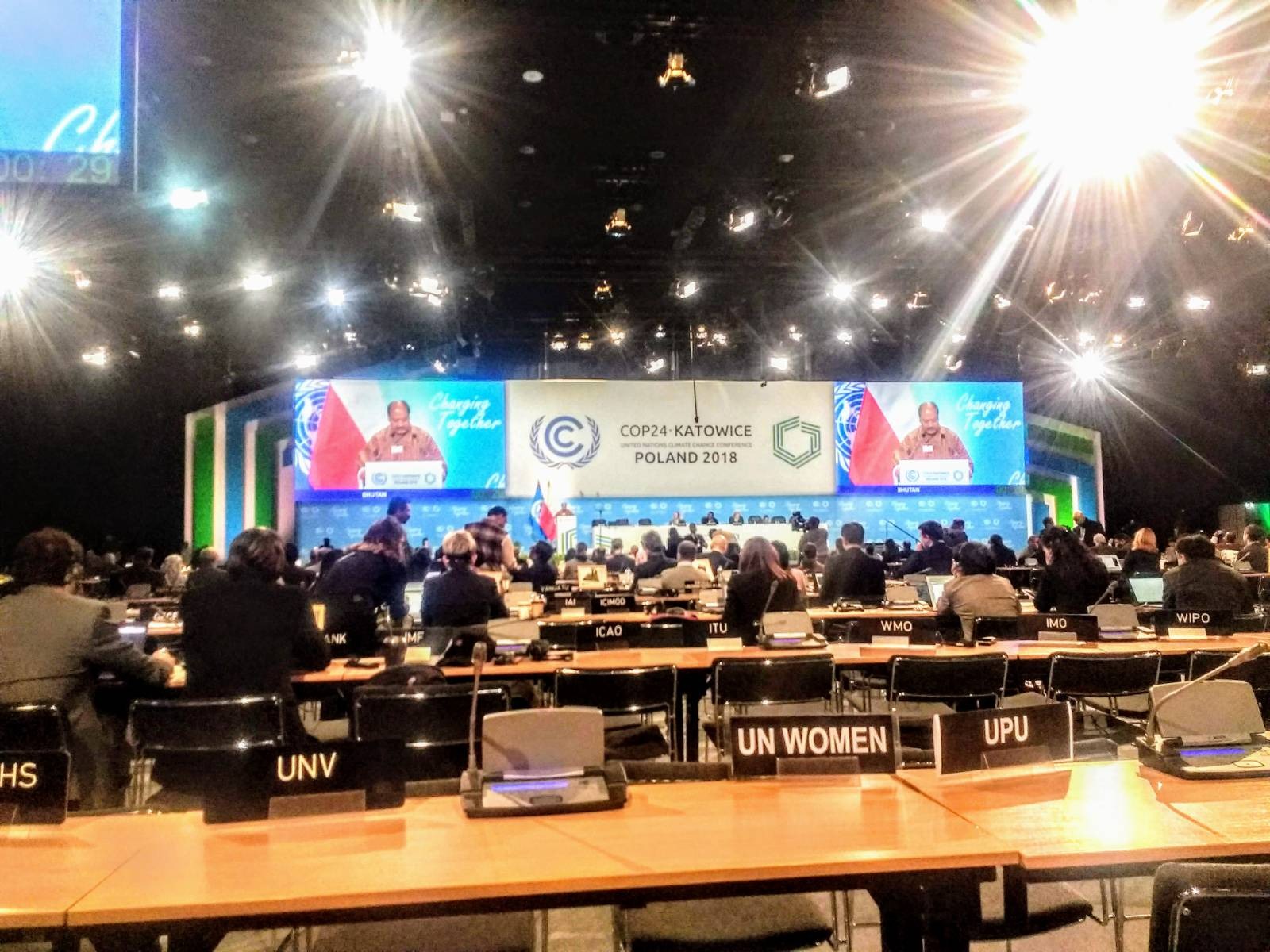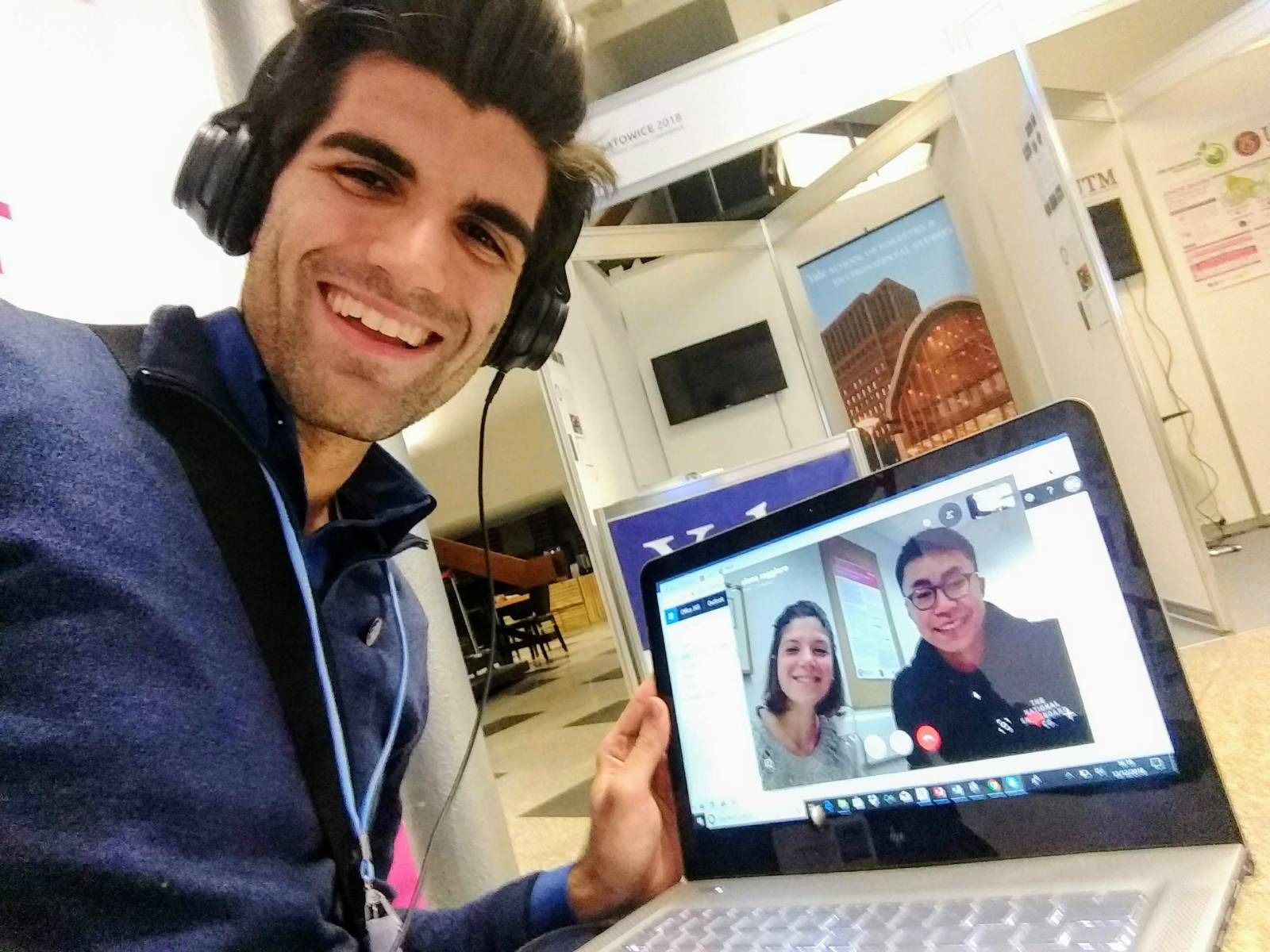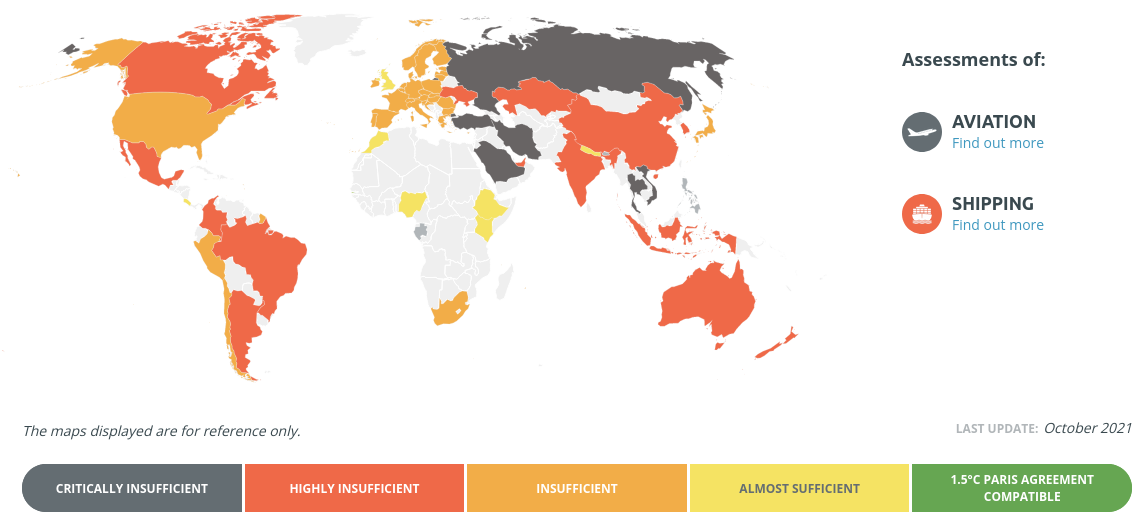Interview with Emanuele Gentile
As COP26 approaches, and I prepare to travel to Glasgow, I decided to interview a past participant of the Walker Institute’s COP climate action workshop1. Emanuele Gentile is a PhD student at the University of Reading now in his 4th year. He attended COP24 in the 1st year of his PhD. Whilst he says his research in short range high-resolution forecasts is not directly related to climate change, he emphasises the need for more reliable forecast predictions to help first responders in emergency situations resulting from new weather extremes.

COP24 plenary (photo taken by Emanuele). COP24 held in Katowice saw significant progress in finalising much of the 2015 Paris agreement, however left large gaps on how market mechanisms such as carbon trading should work.

Emanuele communicating with students participating in COP24 remotely through the COPCAS workshop.
Emanuele described attending COP as a very positive personal experience, but also negative in the sense of realising just how much there is that needs to be done. He said that as Europeans we think of Europe as an exporter of innovative ideas, and see ourselves as leaders in reducing our emissions. But attending COP changed this image, as Emanuele spoke with young people from many developing countries who were much more intellectually active in climate change dialogues and proactive at making changes towards carbon neutrality. He emphasised it was the young people from these states leading the way, and not necessarily state leaders.
In Reading, Emanuele has been part of talks for climate action on the university campus, but found it frustrating that the end results were too often theoretical discussions lacking tangible results. Fast acting goals, such as carbon neutrality within a year could have significant knock on effects – in the case of universities any success will leave other campuses asking themselves how they got left behind. As another example, he pointed to the school children in Denmark, who decades ago built a wind turbine to demonstrate that it was a feasible source of clean energy2. Today Denmark is one of the world’s largest produces of wind power.
There is too much talking! Too much politics! And not enough action from people. We don’t have the energy of change that used to exist in Europe.
Speaking to everyone, he says “You need to leave your shell and understand that you have a responsibility of organising the energies of other people, not just doing your job. Because doing your job alone is not enough.”
After attending COP, Emanuele met some young people from the Moroccan agriculture industry – they were very proactive and knew practical things, how to sow a field, how to water a field. And he met a policeman from Ghana who was 25, who came to COP just to learn about renewable energies, and other people from Africa who came to learn about solar cookers to circumvent reliance on electrical power networks.

Morocco and some other African nations are among countries ranked closest to achieving goals of the 2015 Paris climate agreement. Source: climate action tracker October 2021 https://climateactiontracker.org
Emanuele also described anguish over the pace of change in Europe, where technocratic solutions are favoured. The first talk that Emanuele attended at COP highlighted how we have 10 years to act on climate change, 10 years to rapidly reduce emissions and avoid much more dangerous levels of global temperature rise3.
10 years is a very short amount of time. Emanuele says that you either need to have a change of political system, or everyone must act in their community. There is not this interest at a university level, but if you go to Gambia, Ghana, Senegal, Costa Rica, Barbados, young people are interested in climate action and are making progress.
In Europe, energy is going into drawn out political fights, instead of into this community action. People seem to prefer talking over acting. But we need climate action. That’s why its called climate action not climate talking!
Another problem Emanuele highlighted is the idea that we live in a meritocratic free market system. Say that you want to go on holiday to Paris, you can take the Eurostar or the easy jet flight. The easyjet flight may well cost much less, but there is no accounting the cost of emissions. If the ticket included the price of releasing pollutants high up in the atmosphere, we would find the flight costing much more than the train.

Emanuele draws parallels between governments subsidising fossil fuels, to paying someone to rob your own bank.
Expanding on this, take another example: we make an investment fund, and we start selling shares. Our investment fund grows at a rate of 2% per annum. Despite the fact that our fund grows at 2%, we have someone come in and we give them 10% back. We are not generating richness, we’re depleting capital. And that’s exactly what we’re doing here on Earth, we’re selling off our assets. We’re maximising short term profit and depleting the assets that enable us to profit. For people in power, who are already old, they refuse to comprehend or acknowledge this true cost.
Emanuele favours a strong carbon tax – the real cost of products. Say you want to eat red meat, what’s the cost compared to a steak of aubergine? If you go to a restaurant they may cost the same to the consumer, even though the environmental impact of beef is so great. This is not a capitalistic meritocratic market. At the moment, we are eroding our assets.
But would it be sufficient if we just fix this single issue with our economic system? Emanuele says it might not be enough, but we need to do it! Right now we subside oil. It is like paying someone to rob your bank! We need to instead build up HUGE funds for green technologies and carbon capture.
Coming to the end of the interview, Emanuele said that we must come up with rapid and bold plans for reaching carbon neutrality and mitigating climate change impacts. Like the kids in Denmark, we need to use the power of community to propel these changes. Even if in the end we aren’t successful, we need to be able to look back on ourselves and say that we tried.
